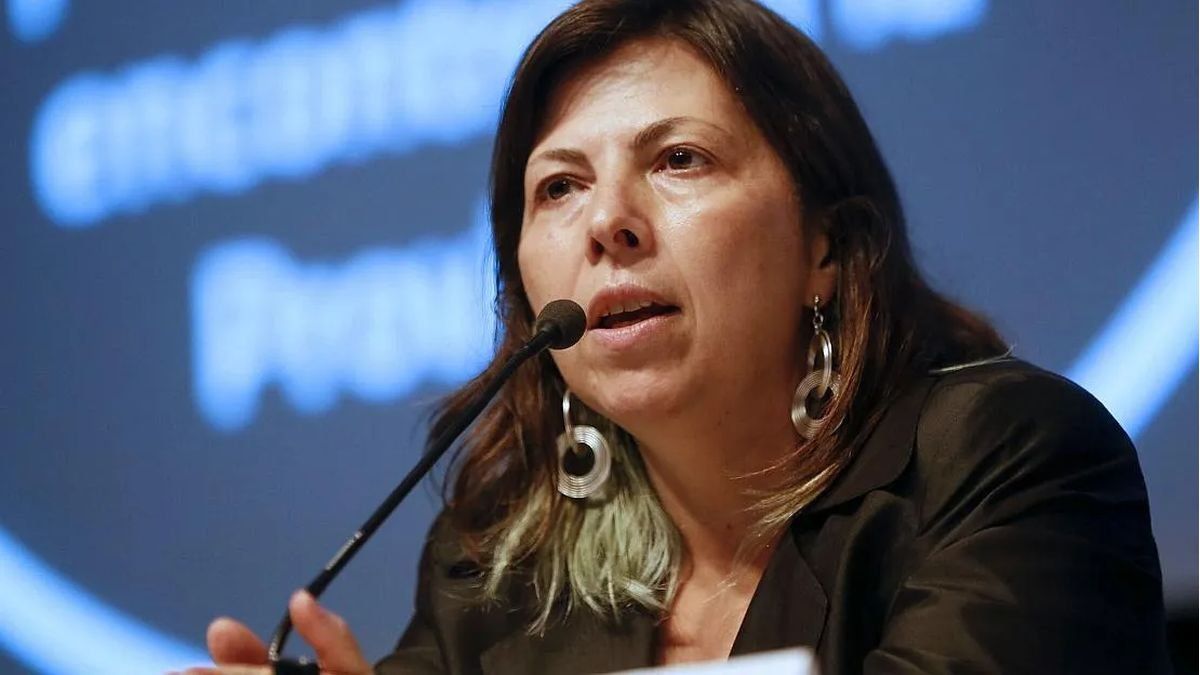Obviously Batakis will not travel to Europe tomorrow but, according to what was discussed with Guzmán, it will be the first station for when the minister schedules a trip abroad. Meanwhile, Guzmán transmitted to him the fundamental items of the negotiation that he himself was about to close, and the basic formulas of an experienced debater with the organization’s interlocutors. In summary, the outgoing official was the one who closed the last two agreements based on the “Time Bridge” theory, and the guidelines were advanced to define, after having completed the first audit of the IMF according to the goals of the first quarter of the year, an agreement for a new payment plan with a significant reduction in interest.
Guzmán wanted to accelerate the current times to close a new payment scheme, after in June of this year he reached a payment deferral scheme until September 30, 2024; According to the Decree of Necessity and Urgency (DNU) 286/2022 published in the Official Gazette, the postponement will govern “until there is a new framework agreement”, the result of a negotiation of the country with the authorities of the Club and its 16 member countries. ”, or, failing that, “until September 30, 2024”.
This last date was not random. It is the month in which the Extended Facilities agreement signed with the IMF ends. Why was the negotiation accelerated? To have an agreement closed before the first quarter of 2023, when the body managed by Kristalina Georgieva will define whether or not Argentina managed to meet the goals agreed in the Extended Facilities approved last March. In that decree it was also mentioned that “Argentina’s objective is to renegotiate the agreement and find better conditions for the country, as soon as possible. The expectation and what we are working on is to finalize the renegotiation with the authorities before June 30.”
Guzmán’s intention, which Batakis will maintain, is to substantially reduce that current 9% (the highest applied within the Club) to a percentage closer to the 2 or 3% applied to compliant states, something that Argentina is Far from being. Batakis’ negotiations will be with the Club’s president, Emmanuel Moulin, who has the mandate of the 22 members of the body to discuss an agreement with Argentina.
As national director of the French Treasury, Moulin is responsible for carrying out discussions with all debtors, especially if they are repeat offenders and difficult to collect, such as Argentina. He is an acquaintance of Guzmán, with whom he had a very good relationship not only because of the Club’s previous negotiations with the country in June of last year, but also because the former Argentine Minister of Economy maintained a direct relationship with Moulin (and the French president Emmanuel Macron) to close the support before the IMF of that country and the European Union (EU).
Batakis agrees with the outgoing minister that it is important to close the agreement with the Paris Club. Although it is known that the money owed is much less than any other liability, these are creditor countries that do not hesitate to directly criticize the management of the Argentine economy. One of them is Japan. To face these discussions, Guzmán traveled to Paris, where the main claim was focused on making it clear that the country wants a payment plan with a lower interest rate than the one applied in the agreement in force until last year.
Argentina made a payment of almost US$190 million to the Paris Club on February 25, as part of the agreement reached in the middle of last year, for which it had already made another disbursement of US$227 million at the end of July, both to the capital account of the total debt, which implied the execution of payments for around US$420 million in a period of eight months.
Source: Ambito
David William is a talented author who has made a name for himself in the world of writing. He is a professional author who writes on a wide range of topics, from general interest to opinion news. David is currently working as a writer at 24 hours worlds where he brings his unique perspective and in-depth research to his articles, making them both informative and engaging.




